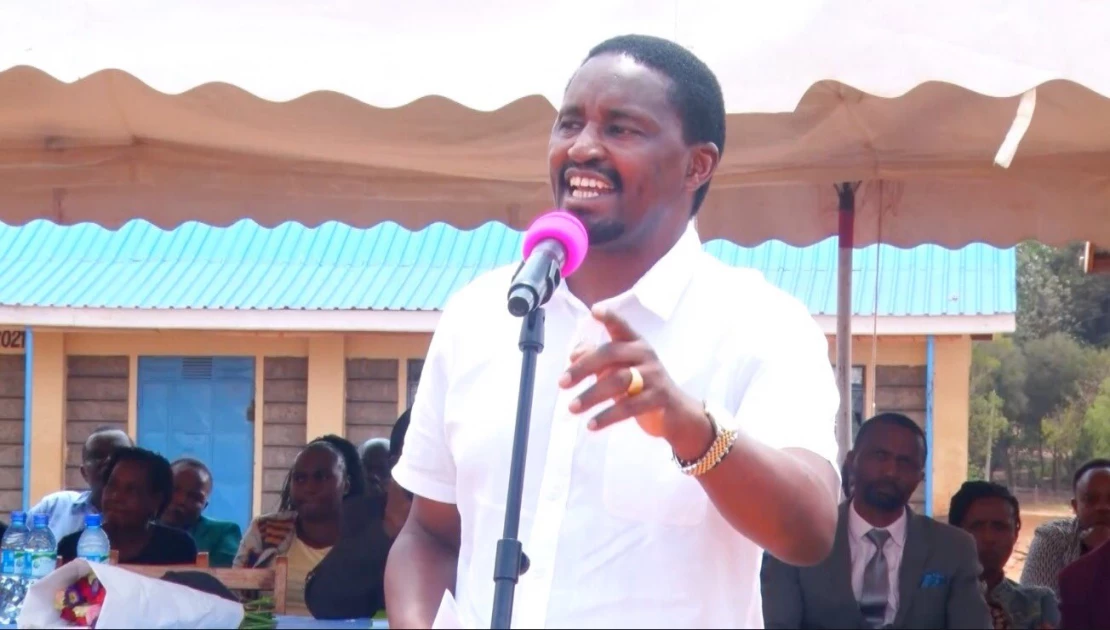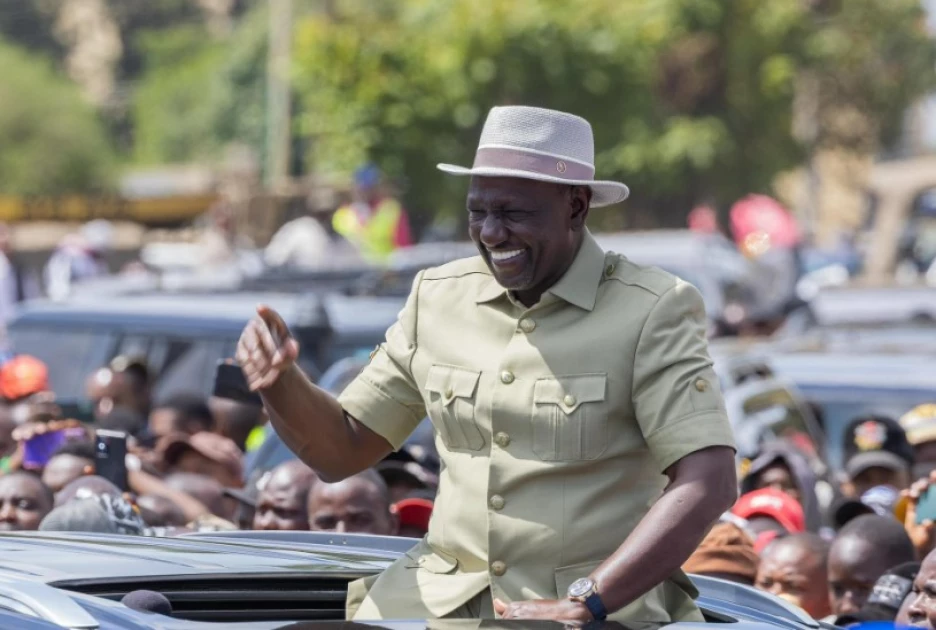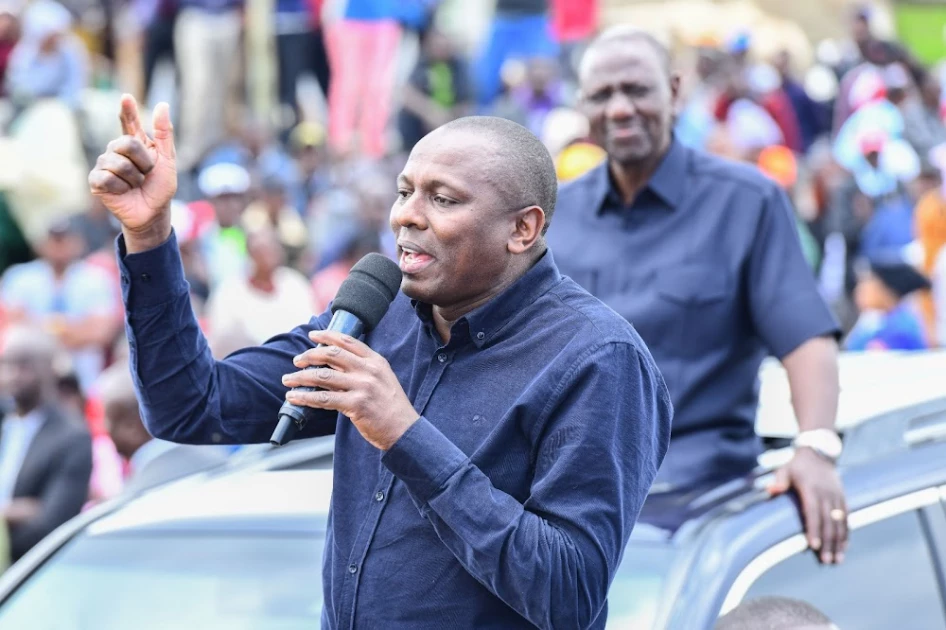OL KALOU, Kenya — The President had barely settled into his third day of touring the Mt. Kenya region when the mood on the ground shifted.
As the convoy pulled into Ol Kalou, the county capital of Nyandarua, there was applause — but not for everyone.
When Kimani Ichung’wah, the National Assembly Majority Leader and a close ally of President William Ruto, rose to speak, the reception turned sour. Residents who had earlier clapped for ICT Cabinet Secretary William Kabogo met Ichung’wah with boos that quickly drowned his voice.
“I have nothing to fear,” Ichung’wah shot back in Kikuyu, trying to hold his ground. But the heckling continued, unrelenting. The microphone slipped from his moment. By the next stop, in Engineer Town, he was skipped altogether — not even acknowledged by the President.
Ichung’wah wasn’t alone.
As the President’s tour wound through Nyandarua County — billed as a developmental showcase — it was hard to ignore the growing disconnect between the crowd and some of the leaders standing beside him. What unfolded was less a triumphant rally than a subtle referendum on local leadership, and on the delicate political balances within the region.
Laikipia East MP Mwangi Kiunjuri barely managed five words before the jeers overtook him. “God bless you all,” he offered, forcing a retreat.

Faith Gitau, Nyandarua’s Woman Representative, was also met with resistance. But she stood her ground. “We have a serious problem with insecurity here. We need more than 50 security vehicles,” she said, pushing through the noise with a strained smile.
The tensions appeared to stem from deeper political undercurrents. Several leaders in the President’s entourage have previously criticized former Deputy President Rigathi Gachagua — a popular figure among parts of the Mt. Kenya electorate — and supported moves toward his impeachment last October.
In this highland region, where political loyalty runs deep but opinions are often kept quiet, that sort of betrayal isn’t easily forgiven.
“They didn’t heckle Ruto out of respect,” said Peter Waweru, a local teacher watching the rally unfold. “But the others? People haven’t forgotten what they said about Rigathi.”

Some, like Nyeri Governor Mutahi Kahiga, seemed to sense the shift. Speaking at a separate event in Nairobi, Kahiga — once a vocal supporter of the Kenya Kwanza administration — distanced himself from the inner circle. “We welcome the President. But our feelings haven’t changed,” he said, offering a pointed reminder that not all applause is endorsement.
The President himself pressed on with his development agenda. In Ol Kalou, he announced the revival of the J.M. Kariuki Memorial Hospital, whose completion had stalled due to a lack of county funds. The national government would now cover the remaining Sh800 million needed to finish the job, he said, promising delivery by year’s end.
He also unveiled a flurry of initiatives: Sh1.6 billion for Last Mile electricity connectivity, plans for a new public university in the county under the University of Nairobi, eight modern markets, and more than Sh950 million for roads.
For some residents, the announcements were welcome — even if they didn’t soften attitudes toward the President’s local allies.
“There’s a lot the government is doing, and we appreciate that,” said Agnes Wanjiku, a trader in Ol Kalou. “But we also know who really speaks for us, and who doesn’t.”
The President appeared aware of the frayed loyalties. At one point, he called for unity and urged residents to look past “political noise.” But there was no denying the careful choreography of his remarks — or the silences around those who once spoke loudly on his behalf.
Interior Cabinet Secretary Kithure Kindiki, who has steered clear of public political fights, used the moment to reinforce his own loyalty. “They call me Mr. Yes Sir,” he said, referring to critics. “But Ruto said yes to Uhuru for ten years — and now he’s President. Let me say yes and help build this country.”
Whether the crowd bought it remained unclear. As Ruto’s convoy moved on to its next stop, so too did the whispers of discontent — not loud, not riotous, but unmistakably present.
In the mountain’s shadow, something is shifting.
















